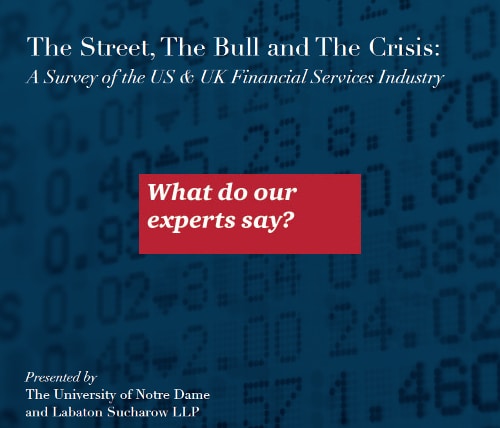End of Year Letter, 2019
Last year brought big changes, for the business community and for Ethical Systems. First, the business community: For those of us who care about ethics and corporate culture, 2019 was a landmark year. This is because the Business Roundtable officially repudiated its 1997 embrace of shareholder primacy—the doctrine that companies must always put the interests […]

 What are your main areas of research/work around business ethics?
What are your main areas of research/work around business ethics?  When businesses and researchers cooperate, collaborate and communicate, everyone wins.
When businesses and researchers cooperate, collaborate and communicate, everyone wins.  2016 has been a year of extraordinary change. Many of these changes make our mission – to help companies strengthen their ethical cultures using behavioral science research – more vital than ever.
2016 has been a year of extraordinary change. Many of these changes make our mission – to help companies strengthen their ethical cultures using behavioral science research – more vital than ever. 
 Dear Friends,
Dear Friends,  A friend of Mark Twain once said, “Everybody talks about the weather, but nobody does anything about it.” Rising inequality is similar. Many on the left urge policies that would redistribute wealth more effectively, such as raising the top marginal tax rates. Some on the right have begun talking about inequality, and they propose policies that would encourage entrepreneurialism among the poor and working class, such as clearing away licensing restrictions on hairdressers and other small businesses.
A friend of Mark Twain once said, “Everybody talks about the weather, but nobody does anything about it.” Rising inequality is similar. Many on the left urge policies that would redistribute wealth more effectively, such as raising the top marginal tax rates. Some on the right have begun talking about inequality, and they propose policies that would encourage entrepreneurialism among the poor and working class, such as clearing away licensing restrictions on hairdressers and other small businesses. Part 1 of 2 on my talk at the 2015 Aspen Ideas Festival.
Part 1 of 2 on my talk at the 2015 Aspen Ideas Festival. In the wake of the financial crisis of 2008, many thought ethics reform would come quickly to Wall Street. New laws did come, in the USA and UK. But is the culture changing for the better? A new report (
In the wake of the financial crisis of 2008, many thought ethics reform would come quickly to Wall Street. New laws did come, in the USA and UK. But is the culture changing for the better? A new report (